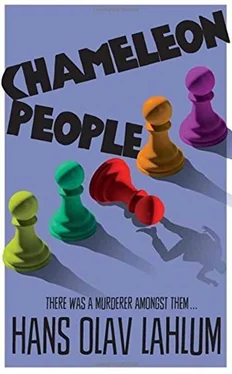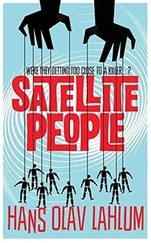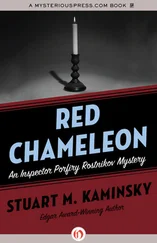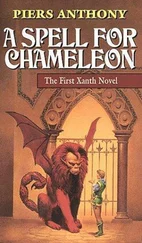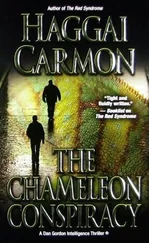‘I had been worried because Eva, even though she was in a good mood, had seemed distracted and had avoided looking at me earlier in the day. So I knocked on her door at a quarter past five and asked if everything was all right. She let me in, but was unusually serious and a bit evasive. Then she told me that she had found herself attracted to someone else, but that it was complicated, that she still loved me and that I had to give her some time to think about what she wanted to do. It felt as though the ground had opened beneath my feet. I could do nothing other than say that I loved her more than anything in the world, beg her to stay with me and that I would give her all the time she needed to think about the situation. I hugged her and could feel her trembling in my arms. Then I went. I left her standing in the middle of her hotel room, unharmed and alive. In fact, it was the last time I saw her alive. And it was exactly five-thirty when I got back to my room.’
He was now speaking faster again, as though fevered.
It was tempting to believe him. But then I thought that Hauk Rebne Westgaard’s own explanation still gave him a possible motive of jealousy – and the fact that his girlfriend had been confused and in a difficult situation could have resulted in suicide.
Out loud, I asked whether he was sure that the bed was still made and that he had not seen any pills or other means of suicide in the room. He gave a sharp nod in answer to both.
The only question that remained was a sensitive one. I paused for a beat and spoke slowly when I said that I had to ask everyone, as a matter of procedure, where they were when Per Johan Fredriksen died at half past eight on Saturday evening.
Hauk Rebne Westgaard conceded that he understood why I had to ask. Then he said: ‘Well, in my case, I was unfortunately on my own in the car driving back to Holmestrand. I had been at the anti-EEC conference as part of a delegation of Labour Party members who are against membership. It’s no coincidence that Kjell Arne ended up in the Conservative Party, Per Johan in the Centre Party and I in the Labour Party. Per Johan and I agreed on the EEC question. Membership would be catastrophic for rural Norway and the beginning of the end for agriculture as we know it. In fact, Per Johan and I met very briefly that day. We exchanged looks and nods, but no words, when he gave a short talk earlier in the day. I am sure we were both thinking what a social hotchpotch it was, the two of us and other veterans from various parties together with long-haired urban radicals of both sexes. The conference closed around half past seven. I got into the car and was back here around nine. I heard that Per Johan had been stabbed on the ten o’clock news.’
Neither of us said anything. Hauk Rebne Westgaard had been in Oslo on the day that Per Johan Fredriksen was murdered. Having left the conference an hour before, Hauk Rebne Westgaard did not have an alibi for the time of the murder, unless anyone could confirm that he was back here in Holmestrand before nine o’clock.
I asked in as friendly a manner as I could, whether his sister or anyone else here could confirm that he had been back by nine.
He shrugged with his palms up.
‘No, unfortunately not. The farm hands were finished for the weekend, so I did not see any of them. I did see my sister, but she would not be able to confirm the time.’
I was once again taken aback by the way in which Hauk Rebne Westgaard spoke about his sister. So I enquired if I could ask her that myself.
He looked at me with a mixture of reproach and bewilderment, as though I had understood nothing. All of a sudden he reminded me of Patricia. Then he said: ‘Of course. My sister is at home. Follow me, you can ask her all the questions you like.’
Silent and slightly puzzled, I followed Hauk Rebne Westgaard across the farmyard. We approached what from the outside looked like a very ordinary wooden cabin.
I realized that something was amiss when I saw that the door was locked from the outside; my host produced a key and unlocked the padlock before opening the door.
An even greater shock was waiting behind the door.
The wooden cabin was like any other modern home with a bedroom and a bathroom. The four walls were painted in four different colours – one red, one green, one yellow and one blue. There were no bookshelves or anything else on the walls. And on the floor, in the midst of building blocks and toy animals, sat a plump woman in her fifties.
I looked around for a child, but there was no one else in the room. It finally dawned on me when the woman jumped up, clapped her hands and shouted: ‘Food! Yum yum!’
I understood the full horror of my mistake when the woman turned towards us. Her face radiated a childlike joy, but her eyes were empty and uncomprehending. Her expression became fearful and her smile disappeared when she saw that her brother did not have food with him, but instead a man she didn’t know.
Fortunately, Hauk Rebne Westgaard dealt with the situation very calmly.
‘It’s too early for your morning snack, but you will get some food soon. In the meantime, this nice man has come to see us and would like to ask you some questions. His name is Kolbjørn,’ he said, in a friendly voice.
Her brother’s voice seemed to banish the child-woman’s fear straightaway. She clapped her hands again and said: ‘Visit! Hooray!’
She beamed up at me and held out her hand. Then she stood there looking at me expectantly as she rocked back and forth on her heels.
Having recognized my blunder, all I wanted to do was to turn around and run out. But that was not possible without frightening the fifty-year-old woman who it would seem had the mental capacity of a five-year-old. So I started by asking her what she was called.
She replied, delighted: ‘I’m called Inger!’
I thanked her and then asked dutifully if Hauk was a kind big brother.
She answered immediately: ‘Yes, Hauk is kind. He brings me yummy food.’
Her mouth smiled when she spoke, but in her eyes I could also see a deep, serious fear and uncertainty. And I thought to myself that this fear and uncertainty had lain hidden there for all these years. It had been there ever since the day in her lost childhood that she discovered that grown-ups she did not know asked questions she could not answer, more and more frequently. The day she understood that she would never be able to understand. As we stood there looking at each other now, she was back there again, the little girl who didn’t understand.
I tried to pull myself together and asked her if Hauk had brought her supper to her on Saturday evening, and if so, at what time. But as far as I could see there was no clock in the room, and the woman who lived here was not likely to have any concept of time. And I knew that a court would never place any importance on her testimony even if she could answer. The whole exercise felt pointless.
Suddenly she pointed down at the floor and said: ‘Look – I’ve built a tower of eight blocks!’
Her brother said it was a great tower and looked at me expectantly.
I said that it was very good and that I was grateful that she had been able to answer all my questions so well.
She nodded and waved gratefully as we left. The fear and uncertainty in her eyes had vanished. Once again, it was clear that she lived a good life here, without a care, in her eternal playroom.
Hauk’s hand was trembling slightly as he locked the door behind him. We walked together across the yard back to my car, without looking back.
‘I apologize for my blunder,’ I said, when we got to the car.
‘I perfectly understand. You had a duty to ask, and she was having one of her good, happy days,’ he said.
Читать дальше
